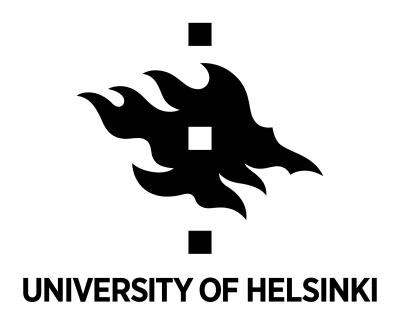
Master in Integrative Plant Sciences
University of Helsinki

Key Information
Campus location
Helsinki, Finland
Languages
English, Finnish, Swedish
Study format
On-Campus
Duration
2 years
Pace
Full time
Tuition fees
EUR 18,000 / per year **
Application deadline
Request info *
Earliest start date
Aug 2024
* from 1.12.2023 to 3.1.2024
** for non-EU/EEA countries
Introduction
How can plants help us cope with global challenges?
Life on Earth depends on solar energy captured by plants - they are the base of most food webs and underpin the functioning of all major ecosystems. Plants release the oxygen we breath. They convert solar energy into chemical energy, providing us with food, fibres, renewable energy sources, and raw materials for many industries. Plants do not carry out these processes in isolation. They interact with other organisms and the physical and chemical environment, communicate and actively adjust to their circumstances. How do they do these things at molecular, physiological and functional levels and how can we profit from understanding that?
When you have graduated from the Master’s Programme in Integrative Plant Sciences you will have the current answers, based on cutting-edge research by our scientists, to these big questions, and more.
Studying
The Master’s Programme in Integrative Plant Sciences is a joint programme of the Faculty of Biological and Environmental Sciences and the Faculty of Agriculture and Forestry, which ensures an exceptionally comprehensive curriculum. You will be able to study the diversity of wild and cultivated plants from the Arctic to the Tropics, as well as plant functions from the molecular level, such as ontogeny and regulation of growth and differentiation, to the ecosystem level.
Why Integrative Plant Sciences?
When you have graduated from the Master’s Programme in Integrative Plant Sciences you will have the current answers, based on cutting-edge research by our scientists, to these big questions, and more, such as:
- How one plant cell develops into a complicated organism and how plant cells, tissues and organs communicate with each other and regulate each others’ growth at molecular and physiological levels
- How plants avoid, tolerate or defend themselves from external stress factors such as diseases, drought and excessive solar radiation, and adapt to their environment
- How plants sense their environment and communicate with each other and with other organisms
- How plants, interacting with microbes, fungi and animals, maintain ecosystems and thus life
- How the genotypic, functional and morphological differences among plants allow them to thrive in vastly different habitats
Students and student life
Student life and especially the student organisation culture is exceptionally rich and diverse in Finland. Also at the University of Helsinki, the student community is very active. More than 250 student organisations operate within the Student Union of the University of Helsinki (HYY), ranging from faculty and subject organisations to political and societal organisations, and from choirs and orchestras to sports and game clubs. Their activities include anniversary celebrations, academic dinner parties, cultural events, get-togethers and excursions.
As a student and member of the Student Union (HYY), you are entitled to many benefits and services. For example, affordable student housing, basic healthcare services, sports facilities and student-priced meals. You also get numerous discounts, for example on public transport fees across the country.
Admissions
Curriculum
The extent of the Master’s Programme in Integrative Plant Sciences is 120 credits (ECTS), to be completed in two years of full-time studies. The degree consists of:
- 80 credits of advanced studies (in integrative plant sciences), including joint courses (20 credits), alternative study modules (30 credits) and the Master's thesis (30 credits)
- 40 credits of other studies from this programme or other programmes
The curriculum contains a personal study plan and it can contain career planning, transferable skill studies, exchange studies at another university, or an internship or apprenticeship period.
You study the diversity of wild and cultivated plants from the Arctic to the Tropics, as well as plant functions from the molecular level, such as ontogeny and regulation of growth and differentiation, to the ecosystem level. The topics include:
- Plant biotechnology and breeding
- Molecular biology and genetics
- Regulation of growth, reproduction and differentiation of tissues
- Biological basis of crop yield and wood formation
- Plant ecology and evolutionary biology
- Diversity and systematics of plants and fungi
- Species identification
A personal tutor will help you tailor an individual study plan according to your spirations and requirements.
Courses and teaching
The teaching is diverse, consisting of lectures, modern laboratory and computer courses, field courses, seminars and excursions. The curriculum is closely intertwined with research. You will be introduced to the research groups from the beginning of your studies, so you will swiftly become familiar with research methods as your studies progress. Much of the study material is in various digital learning platforms (such as Moodle), which allow distance learning.
Your advanced studies include joint courses and alternative study modules. With the choice of courses, you can deepen your expertise in particular areas of integrative plant sciences and tailor your degree towards your aspirations. A personal tutor will help you to tailor an individual study plan according to your interests and requirements.
English is the main teaching language. Because the programme is multilingual, you can take your examinations, write your thesis and fulfil other programme requirements in English, Finnish or Swedish.
Master's thesis
By completing your Master’s thesis (30 credits), you will show that you are:
- capable of scientific thinking
- able to design and carry out experiments under supervision
- profoundly familiar with the topic of your thesis
- capable of effective written scientific communication
A Master’s thesis project usually consists of four distinct phases:
- Design and planning of the study
- Gathering the data (fieldwork and/or laboratory work and/or mathematical modelling)
- Analysing the data (validation/quality control, statistical analysis, plotting)
- Interpreting and discussing the results in the light of existing literature on the topic
Typically, the work is carried out in a research project in which you have a clearly defined and independent role. You must write the thesis yourself. Your work will be supervised by a person, such as a professor or a lecturer, who has a PhD in the same field of research and who knows the topic and the relevant courses well. Upon completing your Master’s project, you will understand how a research project proceeds, from planning the work to carrying it out and reporting the results.
Cooperation with other parties
A multifaceted programme is only possible through the joint efforts of various parties. Therefore the teaching and research is carried out in cooperation with:
- Institute of Biotechnology (HiLIFE unit)
- Botany Unit of the Finnish Museum of Natural History
- Natural Resources Institute in Finland
- Plant Biotechnology Unit of the VTT Technical Research Centre of Finland
- Finnish Food Authority
- Finnish Environment Institute SYKE
- Boreal Plant Breeding Ltd. company
This ensures that you will have good prospects for jobs or apprenticeships.
The experimental greenhouses and outdoor fields on the Viikki campus are also used for teaching purposes. The five field stations in Finland owned by the University of Helsinki are a valuable asset and the venues for various field courses. Of the stations, Tvärminne Zoological Station is located on the southern coast, Lammi Biological Station and Hyytiälä Forestry Field Station in the southern Finland, and Värriö Subarctic Research Station and Kilpisjärvi Biological Station in Lapland, in the north of Finland. At the Taita Hills Research Station in Kenya, East Africa, you can have a completely different, once-in-a-lifetime learning experience.
Gallery
Program Outcome
You will be able to:
- Understand how research in plant sciences and biotechnology can contribute to plant breeding and production
- Plan, coordinate and execute high-quality basic and applied scientific research
- Have a good command of the scientific method and critically evaluate research across scientific disciplines
- Master the top-notch lab techniques in molecular and physiological plant sciences
- Use the basic skills needed to expand your knowledge into other related fields and communicate professionally with experts in those fields
- Act in working life as an expert and innovator in your field, supported by your language, communication, lab skills and other transferable skills
- Be eligible for scientific post-graduate (doctoral) studies
Scholarships and Funding
Our scholarship program is for students who are applying to the University of Helsinki. These scholarships are intended for excellent students from outside the EU/EEA, who wish to complete a Master's program at the University of Helsinki. Grants can be applied while applying to the University of Helsinki’s Master’s programs.
Career Opportunities
Career
With a Master’s degree in Integrative Plant Sciences, you have many potential career opportunities. You can move directly into working life as an expert and innovator in your field, supported by your language, communication, lab and other transferable skills, or continue with postgraduate (doctoral) studies.